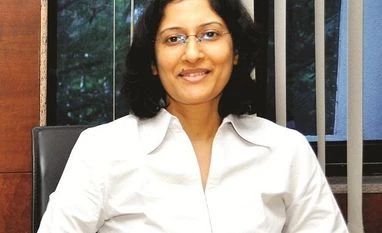Multi-cap funds have gained favour among investors and distributors in the past two years owing to their flexibility to invest in stocks across market capitalisations. Fund managers get the leeway to tilt the portfolio towards large-, mid- or small-cap shares depending on a host of factors.
Franklin India Focused Equity, a multi-cap fund, has a large-cap lean, comprising about two-thirds of its portfolio. Fund manager Roshi Jain, however, clarifies that the fund is market-cap agnostic, with no pre-defined percentage for large- or mid- or small-cap allocation.
“The fund dynamically manages its market cap allocation based on the risk-reward offered by the stocks at any point in time. It employs a bottom-up oriented process and if it is able to find more large-cap stocks meeting the fund house’s criteria, the portfolio will be large-cap weighted,” she explains.
Focused funds aim to take concentrated bets at the stock and sectoral level. As a result, such funds could experience higher short-term volatility compared to their diversified multi-cap peers. Investors are told that the scheme has a higher risk than a normal diversified multi-cap fund, and the best approach is to invest through systematic investment plans, says Jain.
“We don’t have the luxury of having a long tail and have to be a little more careful about which stocks enter the portfolio,” she says.
That said, Jain believes that since the fund is diversified across market capitalisation, the volatility evens out over longer periods of 3-5 years. “The standard deviation and beta of the portfolio are not higher than other diversified products over longer periods, and the discipline of sticking to our investment philosophy ensures superior risk-adjusted returns,” says Jain.
“Each stock has its unique characteristics with respect to quantitative and qualitative attributes which are individually considered to determine if they fit our investment framework,” says Jain.
However, despite its focus on quality, the fund has faltered at times. A case in point is its holding in Vodafone Idea, which shed 66 per cent in the year to June 30, 2019. The fund is currently underweight on consumer staples and overweight on health care and telecom.
Jain believes the economy has seen significant structural reforms over the past few years. And, while that may have led to short-term slowdown, it has laid the foundation for a much-improved economic cycle for the future. “We appreciate that the government is focused on structural reforms and in making India an attractive investment destination while ensuring that fiscal discipline is maintained. Over the medium term, I believe India has structural strengths that make it well-positioned to grow and if the government continues the path of reform it augurs well for the markets,” she says.
)
)

















